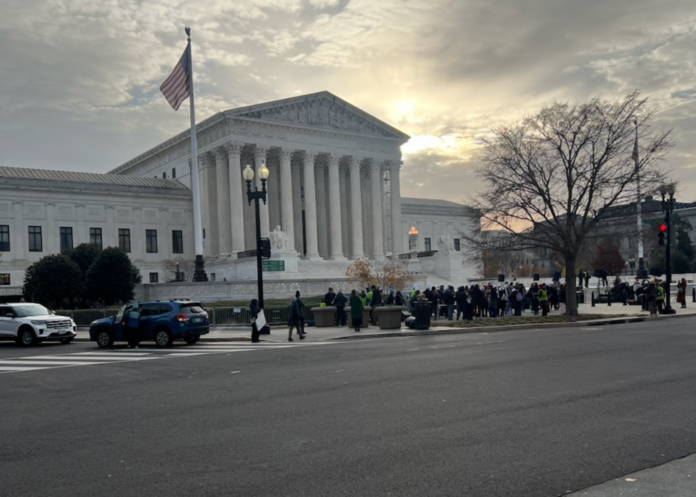
Editor’s Note: Law Week Colorado edits court opinion summaries for style and, when necessary, length.
As of Jan. 19, the Protecting Americans from Foreign Adversary Controlled Applications Act will make it unlawful for companies in the United States to provide services to distribute, maintain or update the social media platform TikTok unless U.S. operation of the platform is severed from Chinese control.
The petitioners in the case were two TikTok operating entities and a group of U.S. TikTok users. The U.S. Supreme Court considered whether the act, as applied to petitioners, violated the First Amendment.
TikTok is a social media platform that allows users to create, publish, view, share and interact with short videos overlaid with audio and text. Since its launch in 2017, the platform has accumulated over 170 million users in the U.S. and more than 1 billion worldwide.
TikTok generates its content feed for users using a proprietary algorithm that recommends videos based on the user’s interaction with the platform. A user’s content feed is also shaped by content moderation and filtering decisions.
TikTok is operated in the U.S. by an American company incorporated and headquartered in California. Its ultimate parent company is ByteDance Ltd., a privately held company that has operations in China. Bytedance owns the algorithm, which is developed and maintained in China. It is also responsible for developing portions of the source code that runs the TikTok platform.
ByteDance is subject to Chinese laws that require it to “assist or cooperate” with the Chinese government’s “intelligence work” and to ensure that the Chinese government has “the power to access and control private data” the company holds.
In recent years, U.S. government officials have taken repeated actions to address national security concerns regarding the relationship between China and TikTok.
Throughout 2021 and 2022, ByteDance negotiated with executive branch officials to develop a national security agreement that would resolve concerns around the platform. Ultimately, negotiations stalled and the parties never finalized an agreement.
Against this backdrop, Congress enacted the act. Petitioners filed petitions for review in the D.C. Circuit Court of Appeals, challenging the constitutionality of the act. They argued that its prohibitions, TikTok-specific foreign adversary controlled application designation and divestiture requirement violate the First Amendment.
The D.C. Circuit consolidated and denied the petitions, holding that the Act doesn’t violate the petitioners’ First Amendment Rights. It found that the U.S. government’s national security justifications—countering China’s data collection and covert content manipulation efforts—were compelling, and that the act was narrowly tailored to further those interests.
The nation’s high court found that the Act was sufficiently tailored to address the government’s interest in preventing a foreign adversary from collecting vast amounts of sensitive data about the 170 million U.S. persons who use TikTok.
The Supreme Court concluded that the challenged provisions didn’t violate the petitioners’ First Amendment rights.
The Supreme Court affirmed.
Justice Sonia Sotomayor concurred in part and concurred in the judgment. Justice Neil Gorsuch concurred in judgment.

